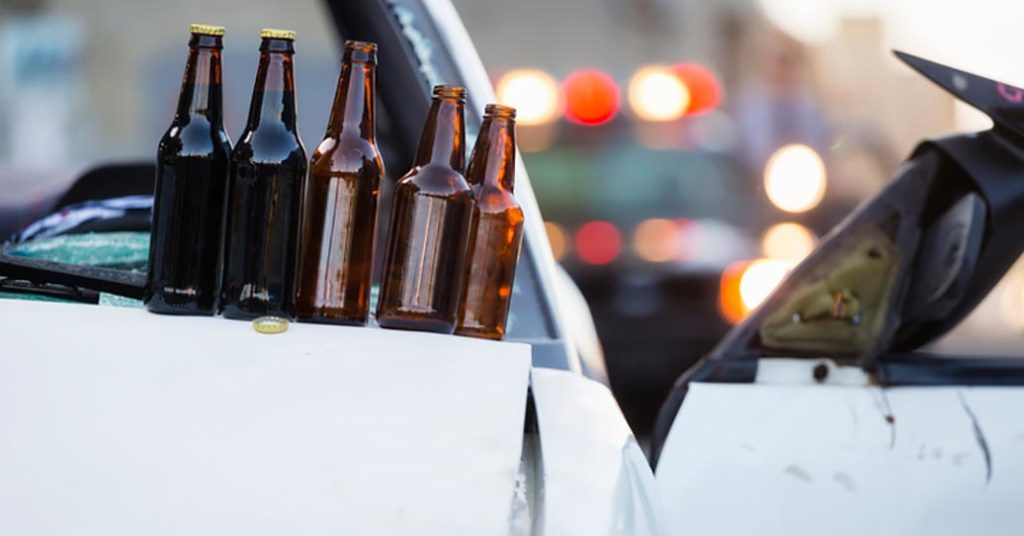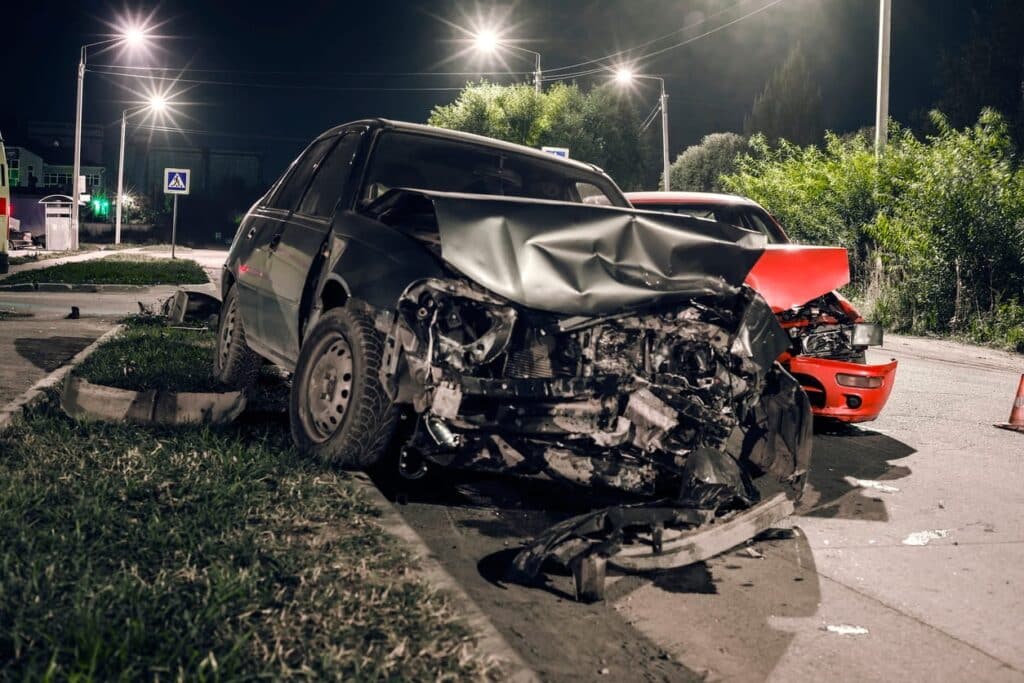Drunk driving accidents occur with alarming regularity in the state of Florida. Approximately 30% of all fatal car accidents in the state are caused by drunk drivers. A greater percentage of injury accidents involve alcohol as well.
If you or a loved one has been injured or killed by a drunk driver, you need to understand your essential legal rights. Victims of car accidents caused by drunk drivers need to understand how to sue in the aftermath of this type of accident in the state of Florida.
How to sue a drunk driver for injuries or wrongful death
Suing a drunk driver for injuries or wrongful death can be an incredibly stressful experience for the plaintiffs involved in the incident. Suing a drunk driver can be a little different depending on whether the incident resulted in injuries or death. It’s important to understand that a drunk driving accident can result in both civil claims and criminal charges.
If you’re wondering how to sue a drunk driver for your injuries or the wrongful death of a loved one, it’s important to contact a car accident attorney to discuss your various legal options for either situation.
What rights does the victim of a drunk driving accident have?
The victim of a drunk driving accident usually has a significant amount of rights in terms of compensation and seeking justice against the drunk driver. Victims of drunk driving accidents are entitled to file a claim and press charges against the drunk driver.
By pressing charges, the victim may receive compensation for a variety of things, including past and future medical records, lost wages and future income, property damage, and more. Retaining an experienced car accident attorney can allow you to fully understand your rights as the victim of a drunk driving accident.
Factors that impact a drunk driving lawsuit
A variety of factors impact a car accident claim and lawsuit. One factor that comes into play regarding a car accident lawsuit is the Florida no-fault law. The specifics of the Florida no-fault law, and its overall impact on a car accident claim, will be discussed in detail in a moment.
Another factor that affects a car accident claim or lawsuit is the underlying facts surrounding the accident itself. If a determination is made that the conduct of the party who caused an accident was particularly reckless, the course and outcome of the case can be altered. For example, if an accident is caused by a drunk or drug-impaired driver, a person injured in the accident will likely be able to pursue a more substantial claim for compensation.
The nature and extent of a car accident victim’s injuries can have a significant impact on a car accident claim or lawsuit. If the injuries are more severe, the consequences of the accident become more significant.
Florida no-fault laws and DUI claims
Florida is what is known as a no-fault state when it comes to certain types of automobile accidents. The Florida no-fault laws require an automobile insurance policy to include what is called personal injury protection, or PIP insurance coverage.
Pursuant to the PIP provision in an automobile policy, a person involved in a car accident is required to get their own medical bills paid by their own PIP coverage on their car whether they are in their own car, in a friend’s car or struck as a pedestrian or on a bike. Lost wages can also be recovered. Your insurance company that provides PIP is NOT allowed to raise your rates or cancel you for using your PIP insurance to pay your bills and wages.
The no-fault law does not permit a person to seek compensation for losses unless they sustain a permanent injury within a reasonable degree of medical probability. Under Florida law, if a person has continuous complaints of pain a doctor can make a determination that they have a permanent injury. Other ways to recover money under Florida law when you are hurt in a car accident include if you have permanent significant scarring or loss of an important bodily function or if someone dies in the accident.
Civil vs. criminal DUI
Since a driver can be charged criminally and civilly for a DUI, it’s important to understand the difference between the two and what it could mean for the defendant driver.
The punishments for criminal DUI charges can result in any of the following:
- Fines: This is the most common type of punishment for criminal DUI charges. This type of punishment often varies by state, with some jurisdictions implementing higher fines than others. Fines may be increased depending on certain factors, such as whether this is a first offense or the driver is a repeat offender.
- Jail time: In some states, it’s not uncommon for a drunk driver to receive jail or prison time for their reckless behavior. The amount of time a driver spends in jail often depends on whether this is the driver’s first incident or if they are a repeat offender with prior arrests.
- Driver’s license suspension and ignition interlocks: It is very common for a drunk driver to be penalized with a driver’s license suspension and ignition interlocks. These measures are put in place to prevent drunk drivers from committing the crime again.
- Alternative sentencing: This type of punishment may vary depending on the jurisdiction but may include community service, treatment for substance abuse, alcohol prevention education programs, and more.
Civil claims for a DUI are geared more toward the financial aspect of the accident and include providing the victim with proper compensation for any of the damages they have incurred as a result of the accident.
Do DUI accidents result in larger settlements?
A common question associated with an accident caused by an impaired driver is whether a DUI accident typically results in a larger settlement or judgment. The possibility does exist that a person injured in a DUI accident may be able to receive a larger judgment. The prospect of a higher dollar judgment exists because of a legal doctrine in Florida known as punitive or exemplary damages. It is also much more difficult for a defense attorney to justify the defendant’s drunk or drugged driving behavior. People can become angry and award a substantial amount of damages in these cases.
Punitive or exemplary damages are awarded in cases in personal injury lawsuits, including car accidents, in certain circumstances. Punitive or exemplary damages represent additional compensation awarded in a car accident case when the conduct of the party causing the collision is deemed to be particularly reckless or egregious. A demonstration that the driver who caused a car accident was intoxicated or impaired at the time of the collision needs to rise to the level of conduct deemed particularly reckless or egregious to get these types of money damages.
Punitive or exemplary damages are designed not only to provide additional compensation but to punish the party who caused the accident as well. Punitive damages are also designed to serve as a deterrent to theoretically prevent others from engaging in similar types of reckless or egregious conduct. In practice, we use the fact of driving under the influence to the extent that a person’s normal faculties are impaired to negotiate a much higher settlement.
Are drunk driving accidents in Florida common?
In the United States, over 10,000 people die each year after being involved in accidents with drunk drivers. Unfortunately, as with many other states, drunk driving accidents are not uncommon in Florida. Statistics show that between 2009 to 2018, 7,572 people were killed in crashes involving an alcohol-impaired driver in Florida.
Who can I sue if a drunk driver is at fault in my car accident?
If a drunk driver is at fault in your car accident, you can sue that driver for any damages you may have incurred. As with any other case, you sue the negligent party, so suing a drunk driver for the accident they have caused due to their driving while drunk is not only possible but also necessary to receive compensation and seek justice.
How do I start legal action?
The first thing you should do if you are looking to press charges and file a claim against a drunk driver is to contact a car accident attorney. Retaining an experienced car accident attorney is necessary to take the proper steps to commence the action. Once you’ve retained an attorney, they will discuss the process with you and subsequently serve the defendant driver with a summons and complaint to begin the formal lawsuit.
How can a lawyer help me?
An experienced car accident lawyer can help you in many ways. Not only can an attorney explain the legal process and prepare you for what to expect in your impending lawsuit, but they will also put all their time and effort into ensuring you receive proper compensation for your damages.
Proving negligence in a drunk driving accident
Building a drunk driving accident case commences directly after the collision itself. In other words, the attorney hired to handle the car accident caused by an intoxicated motorist needs to start collecting evidence to support a claim for compensation in the immediate aftermath of a collision whenever possible.
One element of a case that a victim of a drunk driving accident needs to be concerned about in the immediate aftermath of a collision is evidence supporting the contention that the motorist that caused the accident is drunk or impaired. There are several tips to bear in mind when it comes to demonstrating that the driver that caused the accident is impaired.
- Noting alcohol evident on the driver’s breath
- Tossing alcohol containers or cups from the vehicle
- Driver switching seats with other passengers
- Obtaining the criminal file on the defendant
- Obtaining the 911 police tapes
- Obtaining the driver’s license of the defendant to look for prior DUIs
As part of building a case, it is important to get this type of information from law enforcement. If possible, it is also helpful to get the photos or the police video of this type of activity as a means of building a case that the driver of the vehicle who caused the accident was intoxicated at the time of the collision.
Consult a Tampa drunk driving injury attorney
The importance of legal representation when pursuing an insurance claim, and a lawsuit, arising from a drunk driving accident cannot be underestimated.
Insurance companies exist for one primary reason. They are in business to make money for their stockholders and executives. An associated reality is that an insurance company enhances its profits by limiting the amount of money paid out in settlements, including settlements in drunk driving cases.
An experienced Tampa drunk driving injury attorney understands how to take on an insurance company that works to avoid paying a valid claim. In addition, a skilled attorney understands how to maneuver through the Florida no-fault laws when it comes to an insurance claim.
Finally, an experienced personal injury lawyer understands the tactics to employ to enhance compensation in a drunk driving accident case. As noted previously, the facts and circumstances of the accident, coupled with the nature and extent of a person’s injuries, dictate the financial recovery in a case. With that said, the types of losses, damages, and injuries for which compensation oftentimes is sought in a drunk driving case include:
- Pain and suffering
- Mental anguish and emotional distress
- Medical expenses
- Permanent disfigurement
- Permanent disability
- Lost wages
- Property damage and loss
If you or a loved one has been hurt in a car accident with a drunk driver, contact Jack Bernstein, Injury Attorneys for a free consultation. We have been fighting for victims and their families devastated by drunk drivers for over 36 years in Tampa, FL.
Sources:
Barrett, S. (2023). DUI Accident Lawsuits: What Are Your Legal Options If You Get Hit By a Drunk Driver?
McCurley, J. (2023). DUI or DWI Punishments and Penalties.



